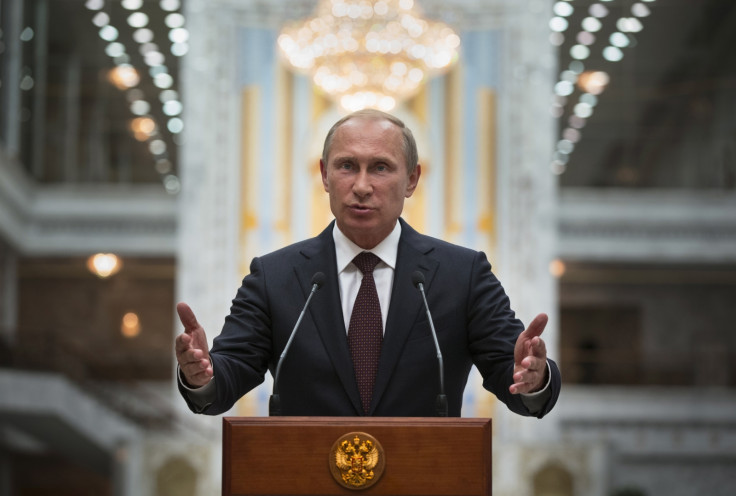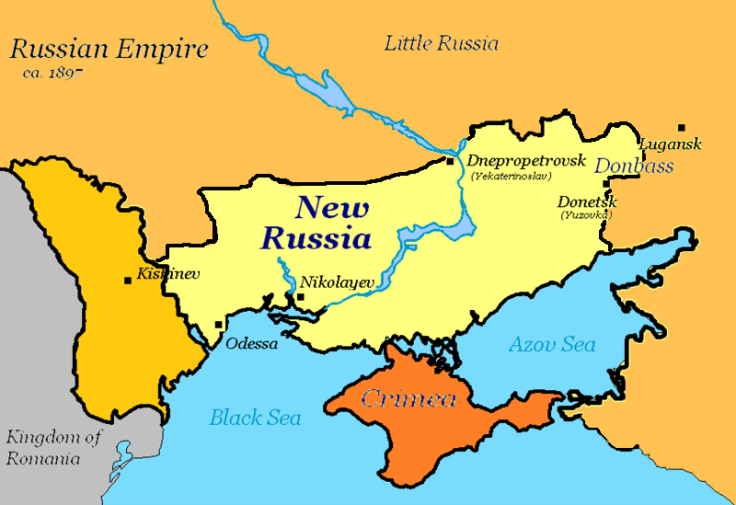Why is Vladimir Putin Referring to Eastern Ukraine as 'New Russia'?

In a new statement, the Kremlin has detailed Russian President Vladimir Putin's address to pro-Russian separatists battling Kiev's force in eastern Ukraine, which referred to the rebels as "the militia of New Russia" or "Novorossiya".
This term is not a new addition to the Russian leader's personal lexicon. In a televised question and answer session in April in the midst of the Crimea crisis, Putin told the audience, in reference to the restive eastern regions of Ukraine: "It's new Russia."
This phrase has raised fears about Putin's territorial ambitions in the former Soviet Union but what does this term really mean?
"Novorossiya", which translates as New Russia, is a historical term for a region conquered by the Russian empire in the 18th century and controlled by Tsarist Russia in the 19th Century.
In the same Q&A, Putin uttered "God knows" why the "New Russian" regions became Ukrainian territory in the 1920s.
This area, shown below, today represents an area of southern Ukraine and borders the controversial Crimea region, which claimed independence earlier this year.

Putin's use of the nostalgic term rings of similar calls of historical ties to the Crimea region before Russia annexed the peninsula, again heightening fears that the Imperial Russian Bear has its sights set on territory that they still believe to be Russian at heart.
The Ukrainian regions that "Novorossiya" refers to are Donetsk, Odessa, Kharkiv and Dnipropetrovsk. Putin has repeatedly stated his intention to protect ethnic Russians living in these regions due to the strong cultural connection between them and "Mother Russia".
"We must do everything to help these people to protect their rights and independently determine their own destiny," he said in April.
Ukraine is in both Russia's perceived "sphere of influence" and the "shared neighbourhood" with the European Union and the Nato military alliance. It is a nation torn between the attraction of a modern West and its own eastern Soviet history.
Approximately 21% of Ukraine's population is Russian and it has deep cultural and historical links with Russia. The Russian ambassador to Ukraine has even stated that "Ukrainians and Russians are a single nation".
For now, it seems that Putin, like his ambassador, is intent on framing the Ukrainian rebels as an extension of Russia itself and as part of a "New Russia".
Whether his future actions reflect the controversial rhetoric remains to be seen, but to label the rebels as a "Novorossiya" militia itself is a politically-charged move which is sure to agitate Kiev's elite.
© Copyright IBTimes 2025. All rights reserved.






















